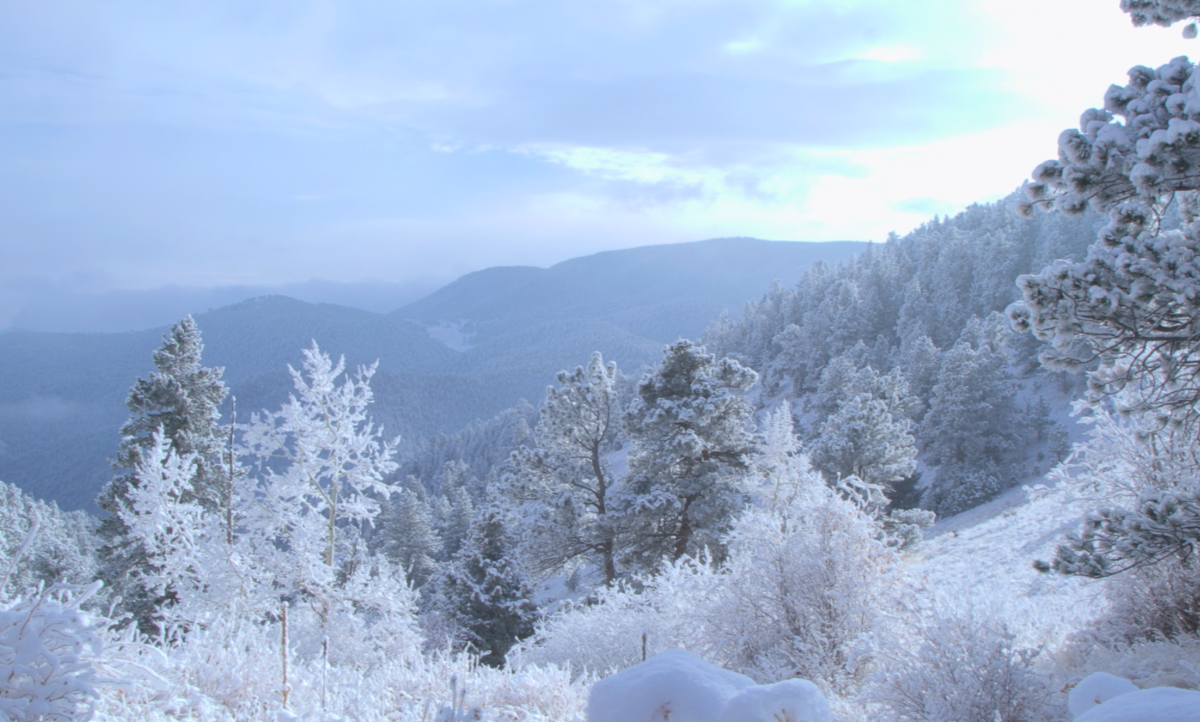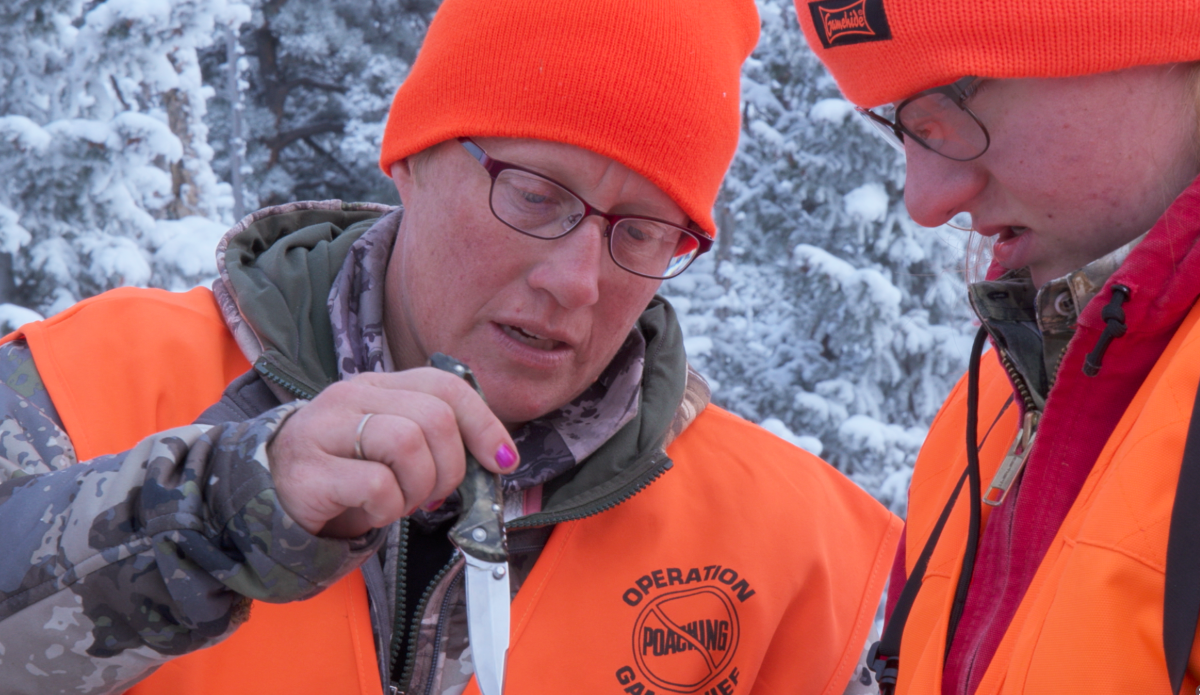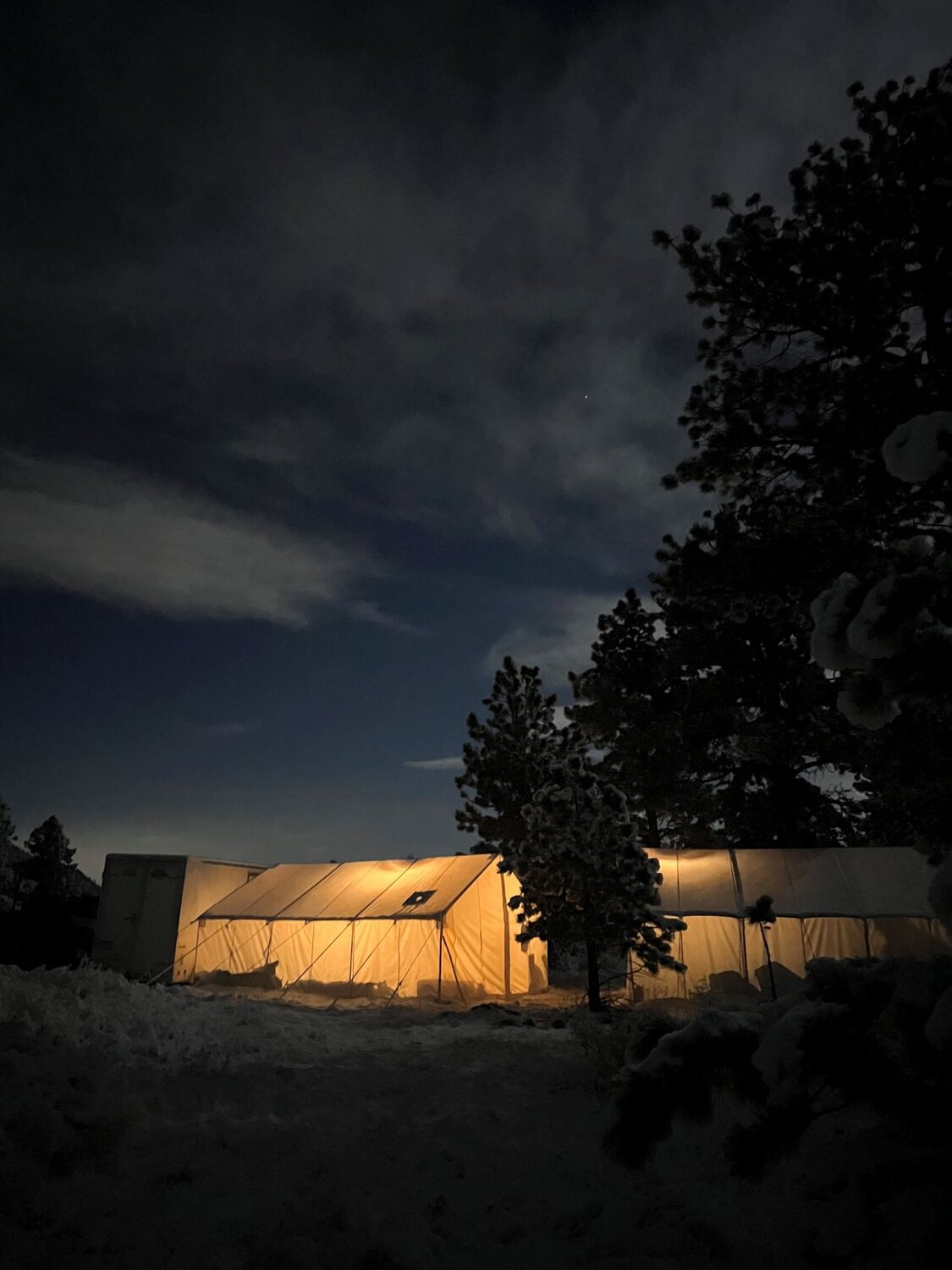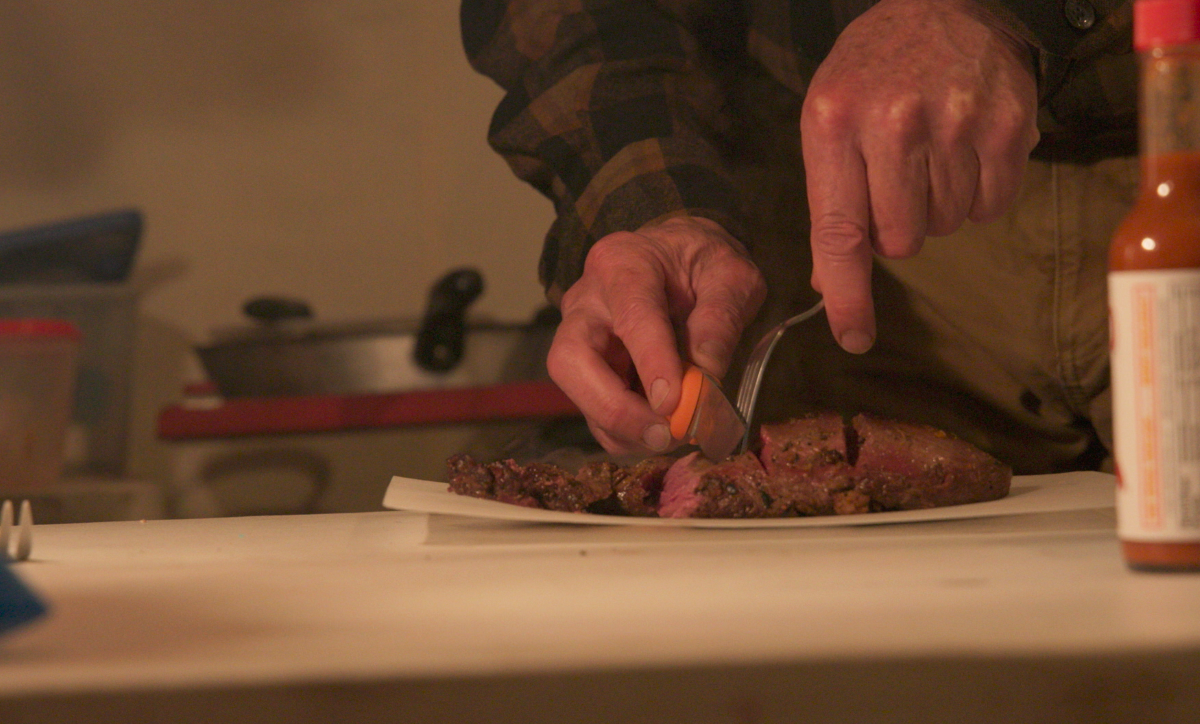Bucking stereotypes, Pepper Canterbury leads hunting trips for women and kids

JEFFERSON COUNTY, Colorado — The Hunter Outreach Program is a state-funded program through Colorado Parks & Wildlife (CPW) that teaches novice and inexperienced hunters the knowledge, skills, ethics and traditions of hunting through workshops, clinics, seminars and educational hunts.
CPW ran 41 mentor-led hunts last year across northeast Colorado ranging from turkeys and pheasants to deer and elk.
The demand for the Hunter Outreach Program is high in the region — 106 participants attended free of charge in 2023, but almost 500 Coloradans applied. Applicants are ranked based on experience, prioritizing those with no hunting background.
The program was launched in 2002 to keep the tradition of hunting alive and make the practice more inclusive — Women Afield is a hunt for adult women only, and the Youth Hunter Outreach Program is for children aged 12 to 17.
Pepper Canterbury is the northeast region hunting and angling outreach coordinator for Colorado of Parks and Wildlife. Rocky Mountain PBS joined Canterbury on a three-day deer hunt where we spoke with her about the program and her role as a CPW hunt leader. The conversation was edited for length and clarity.
Rocky Mountain PBS: Can you tell me more about the program you run through Colorado Park and Wildlife?
Pepper Canterbury: Our program is for the novice hunter who doesn't know anything about hunting at all, to teach someone the skills of being outside and being able to connect with nature and know where their food comes from.
We get to see someone who's never shot a rifle before to not only shooting that rifle, but shooting it accurately, comfortably, and getting to harvest an animal and take it home with them.
We just took out two youth hunters, two young ladies that wanted to learn how to hunt. We took them on a deer hunt up in the Boulder/ Golden area.

Canterbury leads educational hunts in northeast region of Colorado.
Photo: Lizzie Mulvey, Rocky Mountain PBS
RMPBS: Why do you think learning the whole process is important? It's not just about shooting a gun, right?
PC: The least amount of it is actually about the shooting of the animal. It's more about connecting with nature and understanding where our food comes from, learning how to survive. It's at least ten degrees out here right now, nice and cold.
So we get them out there and teach them how to take care of themselves out in the wilderness and survive. It really gives them a lot of confidence. It's not just about hunting. It's more about being out in nature and learning how to take care of yourself.

Pepper Canterbury teaches hunter outreach participant, Addison Gregory, how to field dress a deer in preparation for consumption.
Photo: Lizzie Mulvey, Rocky Mountain PBS
RMPBS: Can you tell me more about the hunt? I know one participant dropped out early. Can you tell me more about what happened?
PC: It’s not everybody's thing, you know? And there's a lot of parents out there who try to push their kids into something that maybe it's not really what they want to do or maybe they're too young.
The girl who dropped out was 12 years old. She's never really camped out in a wall tent...It's a tough experience and we make you help with cooking and sleeping outside and you're in a sleeping bag and it's cold and it's snowy. Sometimes it's just a little overwhelming for folks. But we don't make them stay, we don't want them to be uncomfortable.
We want this to be an experience that they can take home and remember as a good experience. If we forced her to stay here and be so uncomfortable that she was miserable, that's just not teaching her the right way.
RMPBS: For kids that do go hunting and are able to stick it out, what do you think it teaches them? What do they learn?
PC: I think it teaches them a lot of responsibility. I think it allows them to get some confidence in themselves.
When they're out there and seeing tracks in the snow and identifying animals and spotting them and are actually able to even get close enough to make a shot, that's really confidence building for kids and women.
It's really just that confidence building skill that they're out there doing it on their own.
RMPBS: Tell me more about what it's like being a female hunt leader and how you overcome certain obstacles?
PC: It's extremely empowering, being able to teach people and women especially how to be strong and how to have confidence in themselves.
I grew up in a family where my dad encouraged us to be outside. He encouraged me to learn how to weld and do carpentry, and my mom as well. We were just an outdoors family. So I came from a family that encouraged [that] and was supportive of me doing that.
It's carried me into a career that's dominated by men. I guess it could be a struggle, but I got a pretty tough skin. And I've just learned how to navigate that.
But a lot of people don't have that ability. They don't have that experience in the past and they don't have that support system behind them.
That's what I try to provide and make it a comfortable space for women and young kids to come into this world and be able to show that that they can do it, that it just it's not all about men. Men aren't the only ones that can do this. And a lot of times women can do it better than they can.
RMPBS: You were telling me before about how you think about creating spaces that are welcoming, and how it's valuable to think about terms and words. Can you talk more about specific examples and other ways you try to make it more inclusive?
PC: A lot of our hunt leaders are men, and, in the past, they were called hunt masters and we call them hunt leaders [now]. The meaning behind the hunt master was not a derogatory term before, but it makes people uncomfortable. And so we’re hunt leaders, we're leaders, we're mentors, we're not guides, we're not masters.
RMPBS: Does hunting feel male-dominated?
PC: In the past it was definitely a male dominated industry. And still to this day, there are more men out there than women that are hunting or even working in the agency. But if you look at the officers [at Colorado Parks & Wildlife] that we have across the state, we're getting more and more women out there as officers. We're getting more and more women hunting and it's really in the last ten years become something that's really encouraged and really appreciated that women want to get out there and hunt.
We also changed our regulations to allow hot pink for ladies to wear instead of the hunter orange. And honestly, I don't see a lot of ladies wearing it. I see a few, but I haven't seen a lot of ladies wearing it. But I think it just opened that door a little bit to say, ‘hey, you're welcome.’ You weren't able to find women's hunting clothes, women's camo, women's hunting boots that were nice and warm in the past. Nowadays you can go to a sporting goods store, and you can find women’s hunting clothes. As a whole, it’s becoming a lot more open to women.
CPW has a lady's night out program. It's just ladies, and they can come and be comfortable and not feel judged and learn how to shoot or learn how to be outdoors and learn about survival and stuff like that.
We're trying. There's definitely progress.
RMPBS: Can you explain the whole process you’re teaching?
PC: We're trying to teach these kids and these women how to do the whole process so that they can do it on their own next time.
We are teaching these folks how to set up a camp. We're teaching them how to survive out in the woods, be in the cold. We're teaching them how to track the animals, how to identify species of vegetation that the animals will eat or use for cover. We teach them how to read the wind and their topography.
If we can get an opportunity for a safe and ethical and legal shot, then we go ahead and allow them to take that shot. Once we get that shot, we teach them about having patience and letting that animal expire in the right way and then getting down there and field dressing it. We make the hunter field dress the animal themselves with us coaching them, that’s quartering the animal, dragging it out and then skinning it and processing it.
When we have time, and it's not too cold, we'll actually help them cut the meat up and prepare it for consumption.
Last night, we got it back to camp...we actually were able to cook a tenderloin and enjoy a tenderloin for dinner that night, sharing it with the whole camp.
It's a whole camp experience. It's a camaraderie. It's teaching us to work with other people, different personalities, be forgiving of others, and just happy that everybody is out there experiencing something together.

Hunter outreach participants and hunt leads sleep in canvas wall tents set up by CPW.
Photo: Lizzie Mulvey, Rocky Mountain PBS
RMPBS: Can you tell me more about the conservation aspect of it? Like really understanding where your meat comes from?
PC: It provides a connection between society and the human race and where its food comes from and the environment.
We're so desensitized. We get our food off a Styrofoam platter at King Soopers, and kids don't know where their food comes from anymore. And most adults don't, either. And so being able to be out there and see where your food is, see where it lives, it gives you this special connection that you can't get anywhere else.
It just makes me well up because you can't experience that anywhere else. It just brings that whole reality of life and how small we really are in this world and how important our wildlife and our environment is for our survival.
RMPBS: After the animal was shot, you thanked it. Can you tell me more about why you did that?
PC: There is a respect to it. This animal has given its life to provide for me and my family. It's a matter of understanding that that animal is a life that was taken and it's very important to respect that. I try to teach my hunters that respect is necessary.
When you take something's life, it's very profound. Taking that moment to thank it and appreciate it, whether you're religious or not or whether you're spiritual or not, you know, these animals do have spirits. You have to take that moment.
It's very special to be that connected to that animal. It's not about the antlers. It's not about the kill. It's not about power. It's not about any of that. It's about being connected 100% to what is providing for you.

After a day of long day of hunting, hunt leads prepare a venison tenderloin for dinner.
Photo: Lizzie Mulvey, Rocky Mountain PBS
You can learn more about Colorado Parks & Wildlife hunter education and outreach programs here.
Lizzie Mulvey is the executive producer of investigative journalism at Rocky Mountain PBS. You can reach Lizzie at lizziemulvey@rmpbs.org.
Julio Sandoval is the senior photojournalist at Rocky Mountain PBS. You can reach him at juliosandoval@rmpbs.org.